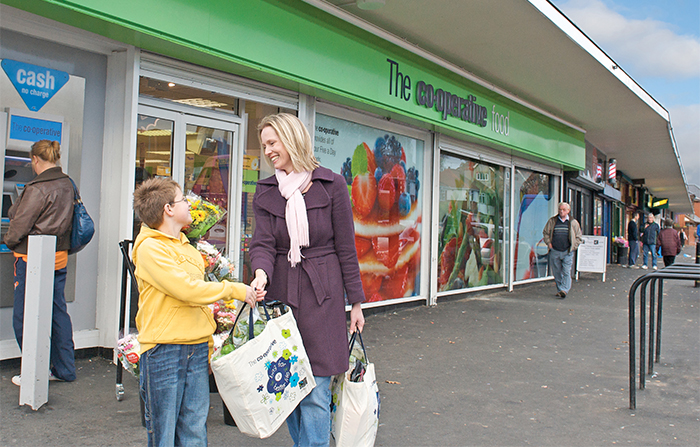
The Co-op has dismissed a rumour that it was about to re-introduce cage eggs to the shelves of its stores.
Eggs in Co-op branches have been wholly free range since 2008, but, according to a rumour circulating amongst some producers, it was thought to be looking at stocking some cage.
The group has moved quickly to issue an emphatic denial. A spokeswoman said there were no plans to re-introduce cage eggs.
"The way farm animals are treated is an important issue for our customers and we are committed to raising the standards of animal welfare," she said.
"In 1995, we were the first retailer to label eggs from caged hens as ‘intensively produced’ leading to a change in the law and to eggs being labeled ‘from caged hens’.
"All fresh eggs sold in our stores are British and either free range or organic, and have been since 2008, and all egg ingredients in our own-brand products are free range as a minimum.”
In 2007 the Co-op was named retailer of the year in the annual Free Range Egg Awards presented by the British Free Range Egg Producers' Association (BFREPA).
The award was made after the group nearly doubled sales of free range eggs in five years. At the time of the presentation free range and organic eggs accounted for more than two thirds of the Co-op's total egg sales.
The following year it removed all cage eggs from its stores, becoming the biggest retailer in the United Kingdom at the time to go completely free range.
The decision followed a six-month consultation with Co-operative members.
More than 100,000 customers responded during the consultation. They identified animal welfare as one of the most important issues they wanted the Co-op to consider.
At the time the decision was announced, the Co-op's category trading manager for dairy, Steve Connolly, said it was "the latest move in our responsible retailing strategy. We know our customers consider animal welfare and local sourcing to be key areas, so we have listened to them and provided only free range eggs that are laid in the UK."
To subsequently revert to stocking some cage eggs would have seemed a strange change in direction for the Co-op, but the spokeswoman made it clear that there was absolutely no truth to the rumour.
The speculation may have gained some traction following a recent controversial decision by the supermarket chain, Morrisons, to return to cage eggs in its own brand M-savers range.
The move led to Compassion in World Farming (CIWF) taking the unprecedented step of stripping Morrisons of a Good Egg Commendation award.
Steve McIvor, director of food business at CIWF, said Compassion was "shocked that Morrisons is taking this backward step. It is a negative decision, not only for laying hens, but also for consumers and for Morrisons’ reputation. Consumers do not like caged egg production and Compassion in World Farming shares this view. We awarded Morrisons a Good Egg Commendation in good faith and would encourage Morrisons to reverse this decision and get back on the right track."
The award was presented in 2008 for Morrisons' commitment to sourcing only free range for its own branded eggs. Steve McIvor said such a commitment had to be a lifetime commitment for the award to apply.
"At a time when other brands across Europe, including Sainsbury’s, McDonald’s, the Co-operative Food, Subway, Wetherspoons, Ocado and IKEA, are taking positive steps to improve welfare, this is a really surprising and unfortunate decision by Morrisons and goes against the general retail trend."
He said that the issue of cage egg production was one that resonated with consumers. The majority of British consumers did not consider that new ‘enriched cages’ met the welfare needs of laying hens and Compassion in World Farming shared this view. The introduction of an M-savers cage egg line sent a negative message to consumers about Morrisons’ commitment to farm animal welfare.
